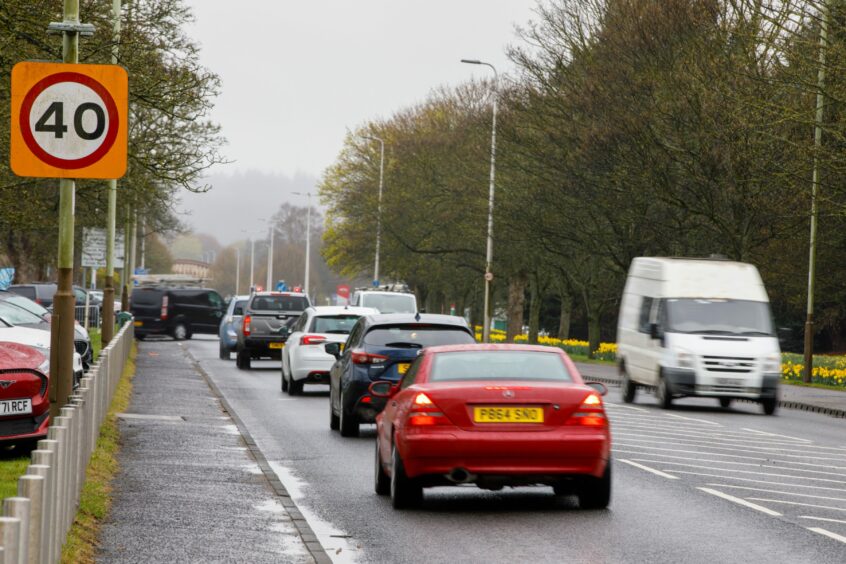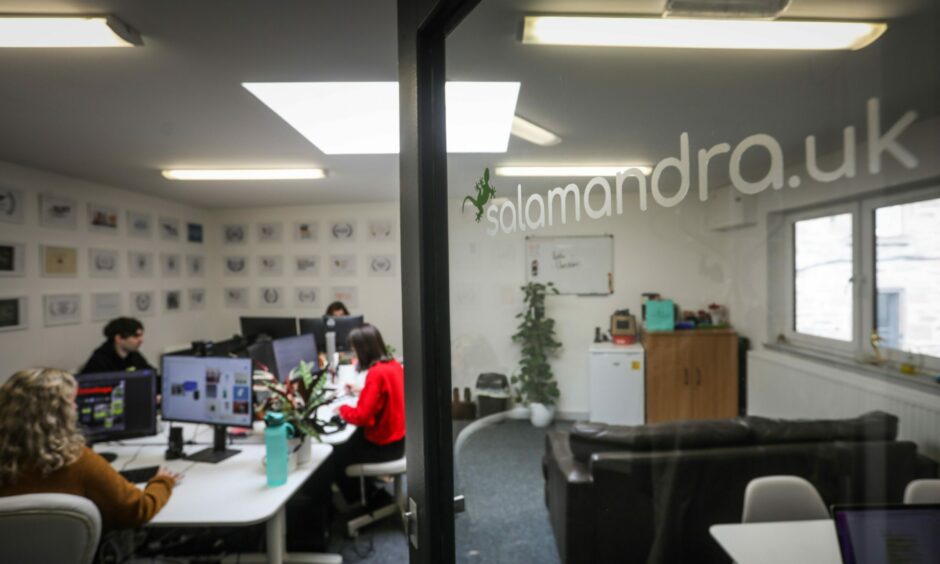Who wouldn’t want longer weekends?
The concept of a four-day working week caught the attention after trials in countries such as Iceland.
Now Dundee companies – such as tech firm Salamandra – are shortly about to participate in large-scale UK trials.
But while the desire for a shorter working week might seem like a desire for lazy people, it could also be good for the environment.
Campaigners claim a nationwide loss of one working day a week can lead to the equivalent of taking 27 million cars off the road.
So you don’t have to feel guilty for wanting an extra day off.
One of the industries leading the foray is tech such as video game development, one of Dundee’s leading sectors.
I asked those behind the push for a four-day working week about how it might help the planet.
How can a four-day working week help the climate?
The 4-Day Week group wants a typical full-time week to fall to 32 hours.
Joe Ryle is campaign director with the group.
Joe said the green benefits of reduced working hours would be:
- Less emissions linked to transport as a result of fewer commuting journeys
- Offices being closed for an extra day each week will result in lower usage of gas and electric for heating, lighting and power
Research conducted last year on behalf of the 4-Day Week campaign suggested a nationwide implementation would result in a 21.3% reduction in the country’s carbon footprint by 2025.
That’s the equivalent of taking 27 million cars off the road, the researchers claim.
Joe also said trials across the world have shown people are more likely to become green-minded when they have extra time off.
“When they’re not just spending days off resting in a zombie-state, people can become more engaged in ways to make improvements where they can,” he said.
Sure, I want an extra day off – sign me up
So if it’s win-win for workers and bosses, why isn’t everyone chomping at the bit to adopt the policy?
There are challenges, Joe accepts.
These include ensuring staff levels are adequate for round-the-clock operations such as supermarkets and hospitals.
“There’s a danger some companies not embracing it will get left behind.”
Joe Ryle, 4-Day Week
Joe feels it is important firms looking to reduce hours consult with staff well ahead of a phased-in process.
And he warns companies who don’t take the concept seriously will lose out on attracting the most talented workers.
Joe said: “Flexible working was shown to be very possible and successful during the pandemic.
“We’re confident a four-day working week is inevitable at some point.
“With automation and new technology, there is a diminishing amount of work.
“There’s a danger some companies not embracing it will get left behind.”
The Dundee tech firm helping the climate with a four-day week
One industry embracing a four-day week is technology — a sector that is thriving in Dundee through the likes of video game development.
Digital animators Salamandra are one Dundee-based firm taking part in a nationwide trial next month, organised by the 4-Day Week campaign.
It will be the biggest trial of its kind anywhere in the world.
Salamandra CEO Christine MacKay said it will help them reach their goal of becoming carbon neutral by next year.
She said: “Our team is fairly young and focused on the future.
“We want to make as positive a difference as we can.
“If we can make ourselves more efficient in an eco sense, then that’s something to celebrate.”
The team estimate they have already cut their carbon emissions by 60% through a reduction in office use and commuting fumes thanks increased home working.
The trial
The six-month trial will see more than 60 companies across the UK taking part.
After it is completed, business will assess how it affects productivity — and whether a four-day working week can help us reach our climate goals.
The 4-Day Week group hope these findings will help bolster their cause.
Christine added: “We are really looking forward to taking part and seeing what we can learn.
“Even if it doesn’t work out, there will be things we can take from it going forward.”
















Conversation